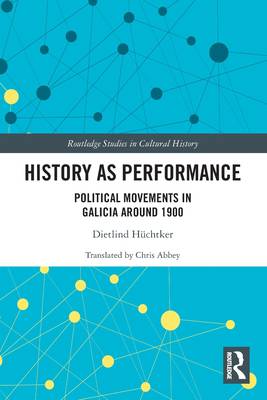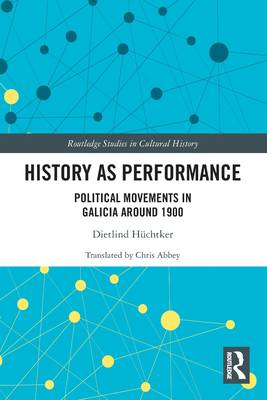
- Retrait gratuit dans votre magasin Club
- 7.000.000 titres dans notre catalogue
- Payer en toute sécurité
- Toujours un magasin près de chez vous
- Retrait gratuit dans votre magasin Club
- 7.000.0000 titres dans notre catalogue
- Payer en toute sécurité
- Toujours un magasin près de chez vous
Description
This study analyzes history as performance: as the interaction of actors, plays, stages and enactments. By this, it examines women's politics in Habsburg Galicia around 1900: a Polish woman active in the peasant movement, a Ukrainian feminist, and a Jewish Zionist. It shows how the movements constructed essentialistically regarded collectives, experience as a medially comprehensible form of credibility, and a historically based inevitability of change, and legitimized participation and intervention through social policy and educational practices. Traits shared by the movements included the claim to interpretive sovereignty, the ritualization of participation, and the establishment of truths about past and future.
Spécifications
Parties prenantes
- Auteur(s) :
- Editeur:
Contenu
- Nombre de pages :
- 318
- Langue:
- Anglais
- Collection :
Caractéristiques
- EAN:
- 9780367545727
- Date de parution :
- 01-08-22
- Format:
- Livre broché
- Format numérique:
- Trade paperback (VS)
- Dimensions :
- 152 mm x 229 mm
- Poids :
- 444 g

Les avis
Nous publions uniquement les avis qui respectent les conditions requises. Consultez nos conditions pour les avis.






